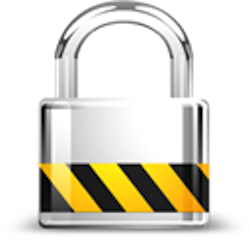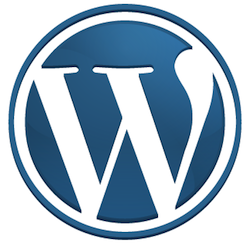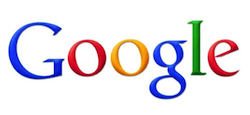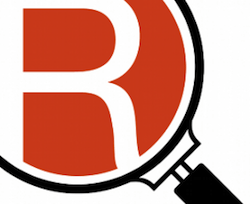Innovation and change are expected on the web. Sometimes they can still be surprisingly fast paced. So it is with WordPress. Version 3.6 was only released in August, and just a few months later, 3.7 is here.
It’s packed with a lot of new features that are sure to make WordPress even better. I’ll cover the big ones in this post. But this new version represents more than just a few new features. It had the fastest turnaround of any version in WordPress history, but it is (in my humble opinion) also arguably the biggest update in a long time.
Why? Read on to find out.
Automatic Updates
↑ Back to top Gone are the days of manually updating to the newest build of a version. Gone are the days of wasting time updating for security fixes. In WordPress 3.7, it’s all automatic.
Gone are the days of manually updating to the newest build of a version. Gone are the days of wasting time updating for security fixes. In WordPress 3.7, it’s all automatic.
It seems simple on the surface and it might not even be a huge leap. Nonetheless, time is money, and automatic updates will save time for everyone who runs their site(s) on WordPress.
It will also ensure speedier updates when security patches come out, arguably making WordPress that much safer in the process.
Automatic updates will only update to different builds of the same version you already have installed. You will still have to manually choose to upgrade to major releases (for example, 3.8).
For technical reasons, a few people might not have access to automatic updates. You can go to Dashboard > Updates to see if your version is working.
Other Languages
↑ Back to top WordPress’s language functionality will improve with 3.7. We don’t yet know all of the information related to this change, but it looks to be an example of incremental improvement.
WordPress’s language functionality will improve with 3.7. We don’t yet know all of the information related to this change, but it looks to be an example of incremental improvement.
If you are running WordPress in a language other than English, your installation will automatically download any available translations for official default WordPress themes.
The web is a global phenomenon and WordPress powers nearly 20% of it, so it makes sense that they’re taking steps to make it an easier platform even for those who aren’t using it in English.
Improved Password Meter
↑ Back to top One neat security update is an improved measure of password strength. The old, more conventional password strength meter is being replaced with Dan Wheeler’s zxcvbn, which was first adopted by Dropbox.
One neat security update is an improved measure of password strength. The old, more conventional password strength meter is being replaced with Dan Wheeler’s zxcvbn, which was first adopted by Dropbox.
Zxcvbn employs a better algorithm that more realistically measures the strength of passwords. Here’s what Dan had to say about other password meters:
Simplistic strength estimation gives bad advice. Without checking for common patterns, the practice of encouraging numbers and symbols means encouraging passwords that might only be slightly harder for a computer to crack, and yet frustratingly harder for a human to remember.
By including zxcvbn, 3.7 corrects for those problems, thus making WordPress a little bit more secure.
Unveiling the New WordPress Search
↑ Back to top Now let’s talk about what’s really got me excited: WordPress search is getting a major overhaul.
Now let’s talk about what’s really got me excited: WordPress search is getting a major overhaul.
Given that just about everyone surfs the web primarily via search (i.e. Google), I believe that having decent search functionality on your site is a must. WordPress has never delivered on that front in the past, but is this about to change?
The Old Deficiencies
Consensus has long held that WordPress search was lacking – extremely lacking. Even back in 2008, Joost de Valk pointed out that “WordPress default search kinda sucks.”
It’s barely got any better since – since then, five years have flown by without any significant updates to WordPress search functionality.
The problems with WordPress search are myriad. Its search algorithm only looks for an exact match to the user’s query – nothing less, nothing more. That is a painfully outdated way of doing things, but it isn’t even the worst aspect of the search experience.
Search results are sorted in chronological order, regardless of relevance. Rather than getting results containing the most relevant posts, users get those that are the most recent.
Furthermore, there are no search refinement or filtering options: you can’t search within a specific category or search within your search results.
Why This New Version Is a Huge Improvement
Not all of these issues have been fully addressed. But while the search changes may not be perfect, they haven’t received as much buzz as they deserve. For the first time in years, WordPress search is seeing some meaningful change.
For one, search is a lot more flexible in terms of what combinations of keywords it looks for and how it arranges those results. Here is the new ordering logic:
- Match full sentence to post titles.
- Look for all search terms in post titles.
- Look for any search terms in post titles.
- Match full sentences in posts content.
Importantly, search results will now be ordered by relevance rather than date! That alone dramatically boosts the quality of the search experience.
WordPress search may not be the best of the best, but it is now usable and functional – a big change from the past and a reason for excitement.
What About Other Search Alternatives?
↑ Back to topWhen WordPress search sucked, people didn’t just put up with it and hope for a change. Driven by necessity and ingenuity, WordPress users sought out or developed their own search solutions.
Craving the search power of web search’s powerhouse, many turned to Google Custom Search, which provides the functionality of the world’s premier search engine to even the smallest blogs. Others wanted a WordPress plugin to suit their needs, exemplified by the excellent Relevanssi.
I’ll take a closer look at these two alternatives and see how they stack up now that WordPress 3.7 brings with it a better native search.
Google Custom Search
 For so long, WordPress search was so bad that even WordPress.org didn’t use it. Instead, it used (and still uses) Google Custom Search.
For so long, WordPress search was so bad that even WordPress.org didn’t use it. Instead, it used (and still uses) Google Custom Search.
There used to be a plugin that could integrate Custom Search into your site, but it is now out of date. These days you’ll have to implement the code yourself.
One downside is that it includes ads, which doesn’t give a very good impression to your users. To get rid of ads on your free custom search engine, your site has to belong to an organization that is tax-exempt under U.S. law. The only other option to disable ads is to pay $100 per year to upgrade to Google Site Search.
That said, in exchange for either paying money or hosting ads on your site, you gain the benefit of using Google’s powerful search algorithm.
Compared to the new WordPress search, Google Custom Search is still superior by a mile. WordPress is nowhere near Google’s advanced search functionality. But if your site doesn’t need to support complex searches, it may be a good idea to stick with the default search just to avoid the ads and keep things «in-house.»
Relevanssi
 Relevanssi is actually a plugin created specifically for WordPress. It replaces the standard WordPress search with a better search engine complete with lots of features and configurable options.
Relevanssi is actually a plugin created specifically for WordPress. It replaces the standard WordPress search with a better search engine complete with lots of features and configurable options.
It ordered searches by by relevance long before the WordPress team ever got close to doing it, and the plugin still has the comparative advantage of allowing you to search for phrases with quotes.
Another unique feature is the ability to search the entire website – not just posts and pages. Relevanssi enables users to search comments, tags, categories and even custom fields. Furthermore, fuzzy matching will search for words that partially match up with the search terms – stellar functionality that keeps the human element of searches in mind.
Relevanssi clearly has a leg up on WordPress search, and is arguably as good as or superior to Google Custom Search. Ultimately, for those who need more sophisticated search functionality and are willing to go through the hassle of installing a plugin, Relevanssi is a great choice – even with WordPress’s search update.
Conclusion
↑ Back to topWordPress 3.7 includes some neat new features that will enhance usability and save you time, both of which are important.
Aside from all of that, the new search improvements are awesome. They bring WordPress to a level where you can use its search on your site without embarrassment. However pathetic that might sound, it is a stride forward for the world’s premier content management system.
But there’s something else at work here, too. The search changes are also important because they show that the WordPress development team is aware of the search problems and willing to work on them – which may foreshadow even greater changes to come.
What do you think? Is this one of the best updates to hit WordPress in a long time? Do you think it spells the end for plugins like Relevanssi? Let us know in the comments section below!
About


The better Search is a big step, but it should not be the last one. The better the search is, the better is the user experience-
I think the automatic updates are a very good feature. Are they for the WordPress version only or is it for all plugins? I’m not sure how I feel about updates being applied automatically without anyone testing to make sure the site works. I guess any issues I’ve had with updates have really only been plugins and not the WordPress version, though.
Would be better to have an option for automatic or manual updates. Updated to WordPress 3.7 on a site this morning and in the process an ecommerce plugin broke. Reverted back to 3.6.1 until the plugin devs get it resolved. This may not be the case down the road.
Indeed. I upgraded yesterday and it broke my WooThemes «Editorial» site. Had to revert back to the previous night’s backup.
It is a good step forward to have automatic updates for WordPress core files. (@Jared: plugins are not touched as far as I know)
I´ve seen websites still running on WP2.0 – people are not regularly updating their sites leaving security holes open.
Once 3.7 is established this will save reduce hacks.
Except for the fact that the update screwed up the author’s role and removed the original admin for the site, now the original admin is not recognized at all. Before they stepped «into this» they could have adjusted and identified who the administrator is and give them priority.
I can’t get into my own site! This was done poorly.
I’ve disabled Relevanssi to test out the new search. The new WordPress search works better than Relevanssi for my site. Relevanssi often doesn’t like some of the plugin shortcodes I use in my posts, and will output script/html/errors in the results. The new WordPress search seems to only have problems with NextGen Gallery shortcodes, resulting in a «Gallery not found. Please check your settings». It also now finds posts that even Relevanssi couldn’t find. I’ll be keeping Relevanssi disabled, its one less plugin I have to manage.
Import/Export. The import export feature of WordPress is also terribly out of date, hit and miss and images rarely import. This function needs to be improved dramatically as so many sites are redone in WordPress.
Needs:
Ability to import larger files without timeout
Ability to import attached images to posts into new install folder by month year.
Ensure you have backups prior to the upgrade. The 3.7 upgrade rendered my site unusable.
Just updated to 3.7 – and my site has gone haywire. I hope this mess can be fixed!
Being a novice and not having had any issues with WordPress updates before, I find it beyond frustrating that since the 3.7 upgrade there is glitches in just about everything. Why did the developers not test before releasing. I read about people reverting back to previous version, having to to FTP stuff and what not.
The author of this article goes on and on about the search feature that is now so fantastic and yeah, it is the only frikken thing that is working on my sites at the moment!? I could care less about the search feature at this point.
I read through troubleshooting posts and one in particular I find laughable. Someone asked when a certain issue will be fixed, the reply was «in 2 days time» with a smiley face – ha – that answer was left a month ago – what gives???
Isn’t it that the problems with the upgrade are due to the incompatible plugins? Maybe they are poorly coded?
So, with auto updates, I guess the thinking is that minor incremental updates of WordPress would be compatible with existing Themes and Plugins? Is this the case with WooCommerce?
Also, whenever I see a major WP update, it would be extremely useful to have a definitive location where you clearly indicate which Themes are compatible with the latest updates. And, more importantly, which are not and should not be updated yet, thereby avoiding unnecessary problems. Making this info clear and easily accessible would make life easier for many of your users.
So, for instance, which of your Themes are compatible with WP 3.7? And where can I easily find this info?
We use Resort and a variety of WC extensions. I think its essential before broadly recommending a new release to folks that you do certify that a theme or themes offered by WC are or are not compatible. In larger ecommerce settings its possible to maintian a dev sever (which we do) and test a WP release on it rather than risk damage to a production site, but many folks don’t have those resources. In my mind automatic updates is not necessarily a good thing for WC users. With so many plugins authored by so many different folks, we find its usually good to let others find the bugs first and give the developers time to react. I don’t think a rapid development cycle is going to be any plus for WC users. It takes time to do proper testing and even one plugin not working can bomb a site, so having the site update itself may be great for a simple blog, but I don’t think advisable for a WC ecommerce site. Any other opinions? I could be wrong, but it seems to me the risk of loss of income is pretty high and not all folks just throw developers at something to fix it.
Anyjow, just my 2 cents. Thanks WC team for an awesome platform and for all you do.
Tendencias
No Pong: From startup to multinational business with WooCommerce
By Vanessa Petersen •
Use print-on-demand to scale your business without inventory risk
By Latoya Duffus •
How buy now, pay later options can help your business grow
By Vanessa Petersen •
No te pierdas nada: únete a nuestra lista de correo
Introduce una dirección de correo electrónico válida.
Consulta nuestra Política de privacidad. Puedes darte de baja en cualquier momento.
Se produjo un error al suscribirse. Inténtalo de nuevo más tarde.
¡Gracias por suscribirte!
Los correos electrónicos se enviarán a
You're already subscribed!
Los correos electrónicos se envían a